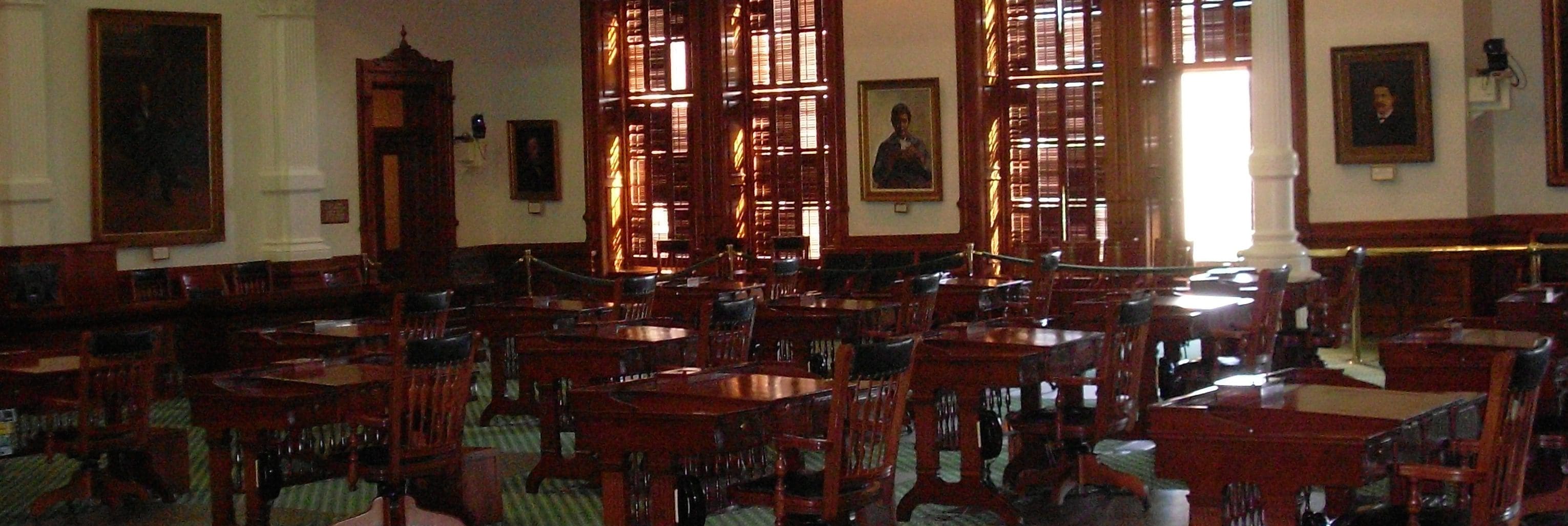The topic of campus speech was front and center as the Senate State Affairs Committee considered legislation to protect free speech at public universities on Monday.
College administrations have long made an issue of reining in free speech on their campuses and, recently, it has bubbled up to the surface as universities have ramped up on their attack on conservative students and speakers.
Senate Bill 18, by State Sen. Joan Huffman (R–Houston), seeks to reverse the trend by requiring universities to create clear free-speech policies that protect students’ rights and the ability of student organizations to invite speakers without obstruction by overzealous administrations and disruptive student protestors.
The legislation comes after an interim committee hearing last year in which Lt. Gov. Dan Patrick charged senators with studying the issue on the heels of an event in Houston in which State Rep. Briscoe Cain (R–Deer Park) was removed from the Texas Southern University campus.
“Campus leadership should never stymie free speech at an institution of higher education simply because of a disagreement in ideology or politics,” Huffman said in a statement after filing the legislation.
“Students need to feel, if they have a different opinion, they can state that and let students or faculty disagree,” said State Sen. Bob Hall (R–Edgewood), who also serves on the committee. “We want all sides of the spectrum exposed and people to freely talk about their ideas in the classroom.”
“If everybody goes to their corner, nobody’s learning,” echoed State Sen. Jane Nelson (R–Flower Mound).
While stories of faculty and protestors shutting down student organization events on ultra-liberal campuses like the University of California-Berkeley are highly reported in conservative media, Texas colleges are, in fact, among the worst offenders.
A representative from the Foundation for Individual Rights in Education, a free-speech organization, cited a case in which they took legal action against Texas Tech in 2003 for limiting a student demonstration to a diminutive “free-speech gazebo”, as well as actions taken against Tarrant County College and Blinn College for infringing on gun rights demonstrations.
In an example from December of last year, a recently formed free-speech advocacy organization, Speech First, filed suit against the University of Texas at Austin on behalf of three anonymous students for multiple violations of students’ constitutionally guaranteed rights to free expression.
Testimony from the students themselves, however, proved the most powerful in support of the bill.
Harold Holdridge, the chapter chairman of the Young Conservatives of Texas at Texas State University, testified about a campus policy which required the organization to submit flyers for approval long before the event was held.
“This essentially put an end to our event. By the time we could get approval, the issue was already over,” he told the committee, adding, “Spontaneous political speech should be supported by universities and it is by the left. But on the right, we have to get approval for anything we put up.”
Texas State University was ranked as being one of the worst colleges for free speech in the country by FIRE last year.
A similar story was told by Nick Ciggelakis, the chapter chairman for the Young Conservatives of Texas at Texas A&M; he testified that approval for distributed materials, which normally takes around 24 hours for most organizations, took more than a week when their group wanted to hold an event.
“If this is occurring at Texas A&M, I imagine it is happening at universities across the state. Our universities should be a marketplace of ideas,” said Ciggelakis.
Jared Cruz, another student from Texas A&M, testified that when their chapter of Turning Point USA, a conservative college organization, wanted to invite their founder Charlie Kirk to campus to speak, their room reservation was canceled at the last minute by the university, who cited “potential security concerns.”
At the conclusion of public testimony, the committee unanimously voted the bill out 9-0. The next step will be for it to be heard by the full Senate body.
Companion legislation has been filed in the Texas House by State Rep. Charlie Geren (R–Fort Worth).





